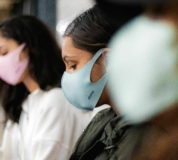Areas of expertise
It can be a daunting experience to find out that one of your employees has tested positive for Covid-19. Further, given the change from an elimination strategy to one living with the virus, it is important that employers get prepared for the likelihood of cases in the workplace. We have summarised the steps that an employer will need to take if an employee does test positive below:
Testing positive:
- You will be advised that an employee has tested positive by either the employee personally, or a public health official. An employer should not wait to hear from a public health official before taking action if informed directly by an employee.
Isolation period:
- The infected employee will be required to self-isolate for between 10-14 days depending on what phase of the red setting we are in. Employers should consider how they will support employees financially during that period. Employees should utilise sick pay where available, or there is also other financial support available to both employers and employees through Work and Income.
Contact tracing:
- A public health official will advise you how long the employee would have been infectious in the workplace for.
- Once you know the infectious period, you can work out if any other employees in the workplace may be considered a close contact of the infected employee. After speaking with the infected employee, you will need to prepare a list of all known persons who have been in the same spaces as the infected employee during the infectious period.[1]
- You will then need to determine whether those persons are close contacts, or ‘casual’ contacts. This will depend on their length of exposure to the infected employee, masks or other PPE use, the size of the space and airflow or ventilation at the workplace.
- You must report all close contacts to the National Investigation and Tracing Centre.
- If close contacts include employees, those employees will be required to self-isolate for between 7 -10 days depending on what phase of the red setting we are in. Again, financial support is available for close contacts and employers via work and income. Close contacts will also need to be tested.
- Casual contacts are not required to self-isolate, however, they should monitor their health and get tested if any symptoms develop.
Stopping the spread:
- Evidence of ongoing spread (more than one employee testing positive) may require that the workplace shut down temporarily. In other cases, conducting a deep clean overnight may be sufficient. A public health official will advise you on the best course of action.
[1] This step may not be required in phase three of the red setting, as close contacts are treated as household contacts only.
Our experts
If you have any questions please get in touch with us.


